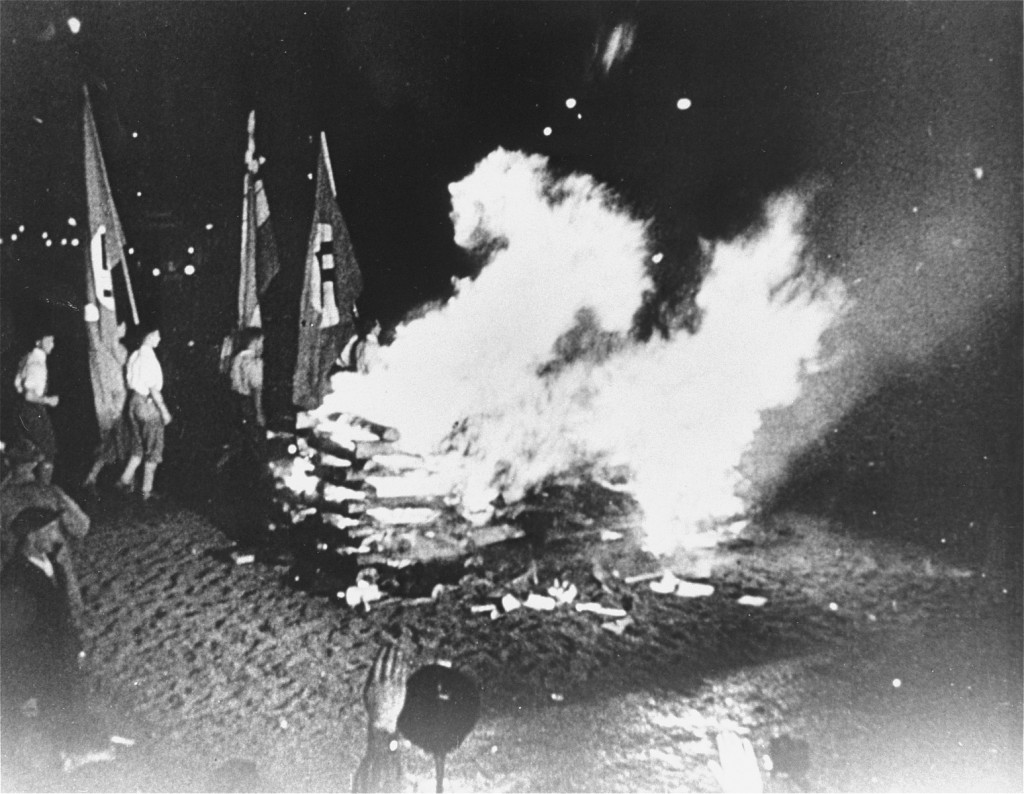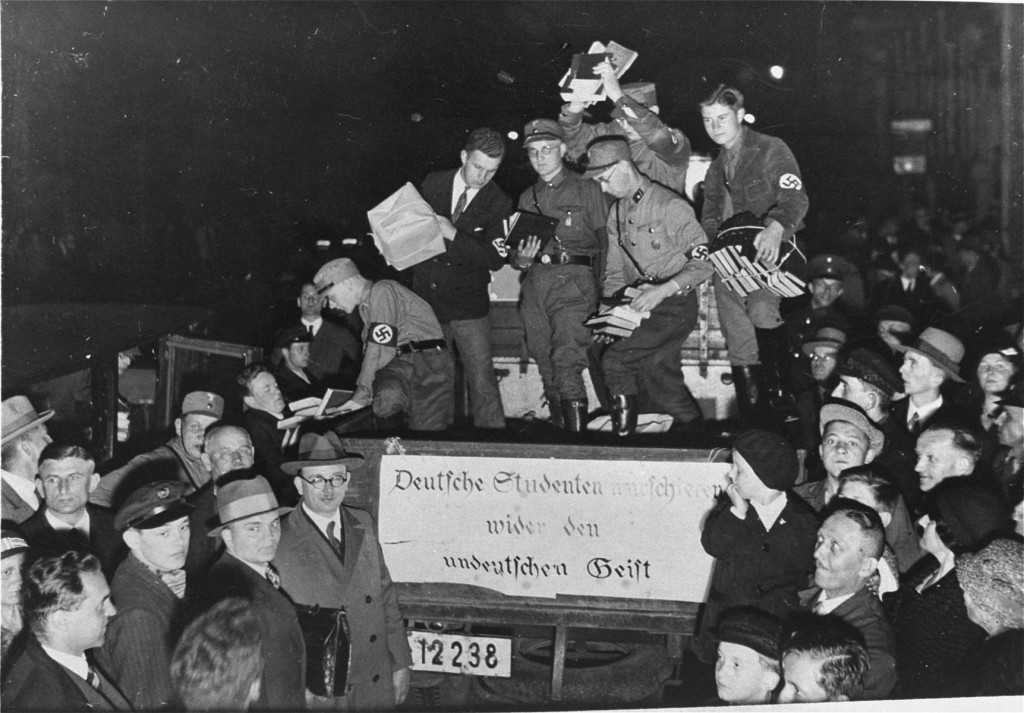
The Book Burning “Fire Oaths,” May 1933
In May 1933, Nazi university students held public book burnings in numerous German towns and cities. At these staged events, speakers often read statements called “Feuersprüche” (“fire oaths”) while throwing books that the Nazis deemed “un-German” into bonfires. These oaths explained why certain works were being burned.
Key Facts
-
1
In May 1933, pro-Nazi students destroyed tens of thousands of books in bonfires.
-
2
The books burned included works by Jewish authors; books in favor of communism, socialism, and pacifism; and works written by Communists, Socialists, and other left-wing political thinkers.
-
3
The Nazi student book burnings were an attack on ideas and people that the Nazis considered to be “un-German.”

In May 1933, pro-Nazi university students held book burnings in towns and cities across Germany. They burned books they considered to be “un-German.” These book burnings took place about three months after Adolf Hitler and the Nazis came to power in Germany. They were organized by the Deutsche Studentenschaft (DSt). This group was the national umbrella-organization for university student body governments.
The day before the scheduled book burnings, the Deutsche Studentenschaft sent out a circular to its member groups. The circular gave guidelines for hosting book burning rituals. It included a list of nine “fire oaths” (“Feuersprüche,” literally “fire pronouncements” or “slogans”) to be read during the event. Speakers were instructed to read the oaths out loud while tossing specific books on the bonfires. The oaths explained why certain works were being burned.
Newspapers across Germany printed slightly different versions of the Feuersprüche. The translation below is based on the version of the Feuersprüche published on May 13, 1933, in the German newspaper Badische Presse [The Baden Press].
Translation of the Feuersprüche (“fire oaths”)
(Translation of Die Feuersprüche as published on May 13, 1933, in the German newspaper Badische Presse [The Baden Press].)
1. Against class struggle and materialism,
For national community [Volksgemeinschaft] and an ideal way of life,
I consign to the flames the writings of Marx and Kautsky.
2. Against decadence and moral decay,
For discipline and decency in family and state,
I consign to the flames the writings of Heinrich Mann, Ernst Gläser, and Erich Kästner.
3. Against ideological unscrupulousness and political betrayal,
For devotion to nation [Volk] and state,
I consign to the flames the writings of Friedrich Wilhelm Foerster.
4. Against soul-shredding overvaluation of base human instincts,
For the nobility of the human soul,
I consign to the flames the writings of Sigmund Freud.
5. Against the falsification of our history and disparagement of its great figures,
For reverence for our past,
I consign to the flames the writings of Emil Ludwig and Werner Hegemann.
6. Against journalism that is alien to the nation because of its democratic-Jewish character,
For responsible collaboration on the work of national construction,
I consign to the flames the writings of Theodor Wolff and Georg Bernhard.
7. Against literary betrayal of the soldiers of the World War,
For the education of the nation in the spirit of battle readiness,
I consign to the flames the writings of Erich Maria Remarque.
8. Against the arrogant corruption of the German language,
For the fostering of the most precious assets of our nation,
I consign to the flames the writings of Alfred Kerr.
9. Against impudence and presumption,
For respect and reverence for the immortal German national spirit,
I consign to the flames the writings of Tucholsky and Ossietzky.
Critical Thinking Questions
If Jews were the principal target during the Holocaust, why were books written by non-Jewish authors burned?
How did the German public react? What was reaction like outside of Germany?
Why do oppressive regimes promote or support censorship and book burning? Why might this be a warning sign for mass atrocity?

